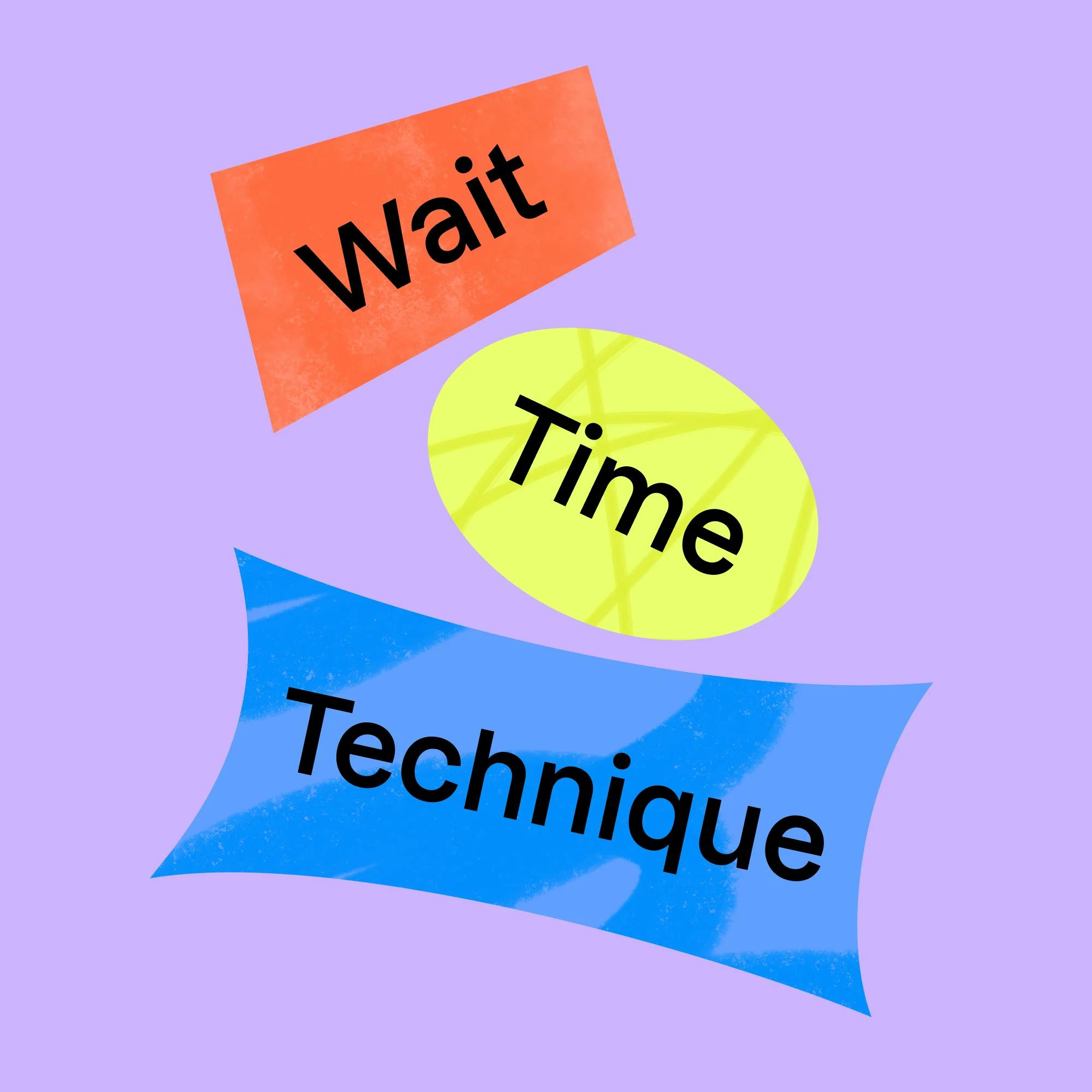At Expressable, we often hear from parents looking for toddler speech delay tips or wondering how to help their toddler talk. One common pattern is that many well-meaning caregivers ask their child lots of questions, like “What’s this?” or “Can you say ‘ball’?”
These questions may seem like helpful ways to teach your child to talk. But in reality, they can make it harder for your child to learn. When toddlers feel like they’re being quizzed, it creates pressure, and pressure doesn’t help language grow.
If your toddler isn’t talking yet, or you're trying to encourage them to use more words, there's a better approach. In this article, we explore the difference between testing and teaching language, and share research-backed speech therapy tips for turning everyday moments into learning opportunities. Whether you're a parent, caregiver, or educator, you’ll walk away with practical tools for helping your child learn to talk (without the pressure!).
Could your child have a speech delay?
Take our screenerWhat is the difference between testing and teaching language?
Many parents think asking questions is the best way to get their child to talk. But when a toddler is still learning how to use words, too many questions can feel overwhelming, like taking a test they’re not ready for. This can be especially tough for toddlers with a speech delay.
Let’s look at a few examples of testing questions:
“What’s this?”
“What color is that?”
“Can you say ‘cup’?”
These questions put the focus on what the child knows or doesn’t know. If they don’t answer, it can feel discouraging for both of you.
It’s important to remember: Your child isn’t being stubborn or ignoring you. They may just not be ready to answer yet…and that’s OK!
Quick speech therapy demo: Try this, not that, to help your toddler learn to talk!
Watch hereWhy teaching works better for language learning
Language is learned through hearing words again and again in real-life situations. Research shows that children need to hear words many times before they’re able to say them. This is called language modeling, and it’s one of the most powerful ways to help a child learn to talk.
Teaching, or modeling, takes the pressure off. It creates a safe, fun space for your toddler to learn language at their own pace. Even if your child isn’t talking yet, they’re still learning by watching, listening, and soaking in everything around them.
5 powerful teaching techniques that help kids develop language
So, what should you do instead of asking your toddler questions? Try these 5 easy and effective speech therapy tips for parents. They’re great for helping children develop language naturally, especially during daily routines.
1 Labeling: Name objects, actions, and people as you go through your day
Example: Say “This is your cup” or “Look, the car is going fast!”
2 Showing: Use gestures, facial expressions, and actions to show what you mean
Example: Wave and say “bye-bye.” Point to a ball and roll it while saying, “Ball rolls!”


3 Repeating: Say important words several times a day, in different ways and situations
Example: Use the word “ball” whenever you encounter this toy, perhaps during playtime, cleanup, and bath time.
4 Modeling: Talk about what you see
Instead of asking, “What’s this?”, try simply saying, “It’s a banana. Yum! Banana!” This shows your child how to use the word.
5 Expanding: When your child says a word, build on it
Example: Child says, “Dog!” Parent says, “Yes, a big dog! The dog is running!”
These 5 language modeling strategies give your child more chances to hear and understand how words work, without feeling like they're being “quizzed.”

Everyday tips to keep the pressure off
If you’re wondering when the best time to teach language is, the answer is…all the time! Helping your child learn to talk doesn’t require fancy flashcards, long lessons, or educational videos. All it takes is your voice and simple, repeated language during your day-to-day life. Use daily routines like playtime, meals, bath time, and outdoor walks as natural chances to talk with your child.
Here are a few reminders:
You don’t need to quiz your toddler to help them talk.
Even if they aren’t speaking yet, they’re still learning.
Your voice, your words, and your attention are the best tools you have.
And remember: Patience is key. Keep modeling language and giving your child time to learn. Trust the process, and over time, you’ll begin to see progress.


Concerned your toddler might have a speech delay?
Teaching (not testing) builds confidence, connection, and communication. So if your toddler isn’t talking yet, or if you’re looking for speech delay tips, start with these easy, play-based strategies.
If you’re concerned your child might have a speech delay, you can start with our free online screener. The questions are tailored to your child’s age, and you’ll get personalized results that show whether a speech evaluation is recommended. Our licensed speech therapists are here to help. Click here to get matched with a speech therapist who’s experienced working with toddlers. We'll support you and your child every step of the way.
FAQs about helping your toddler learn to talk
1 When do babies say their first word?
Babies usually say their first word at around 12 months. By 18 to 24 months, your child should have at least 5 to 10 words that they use regularly and spontaneously. You can learn more about milestones by age in our Learning Center.
2 How do toddlers learn language?
Kids learn to talk by hearing language again and again in real-life situations. Research shows that children need to hear words many times before they’re able to say them. This is called language modeling, and it’s an easy speech therapy technique to use at home.
3 What’s the best way to help your toddler learn to talk?
Instead of asking your child questions, model language for them. Name objects, actions, and people throughout the day. Repeat important words several times. And when your child says a word, build on it. If they say “Milk,” you can say, “Yes, milk in your cup! Yummy milk.”
4 How do you know if your child has a speech delay?
If your child isn’t meeting milestones for their age, it’s a good idea to schedule a speech and language evaluation. You can also start with our free online screener. You’ll get fast, personalized results that show whether an evaluation is recommended.
How Expressable Can Help
Concerned your child isn't reaching age-expected milestones? Looking for communication support from a professional? Expressable is a national online speech therapy practice serving children and adults. We treat all major areas of communication and feeding, offer flexible hours including evenings and weekends, and accept most major health insurance plans. We’re proud to have earned more than 3,000 5-star reviews from our clients (4.9/5 average).
Our therapy model is centered on parent and caregiver involvement. Research proves that empowering caregivers to participate in their loved one’s therapy leads to better outcomes. That’s why we combine live, 1-on-1 speech therapy with personalized education and home practice activities for faster progress.
Communication is more than words. It’s how we share how we feel and show who we are. We’re here to help you or your child do just that.
 Alexis Irazoque, M.S., CCC-SLP
Alexis Irazoque, M.S., CCC-SLP











